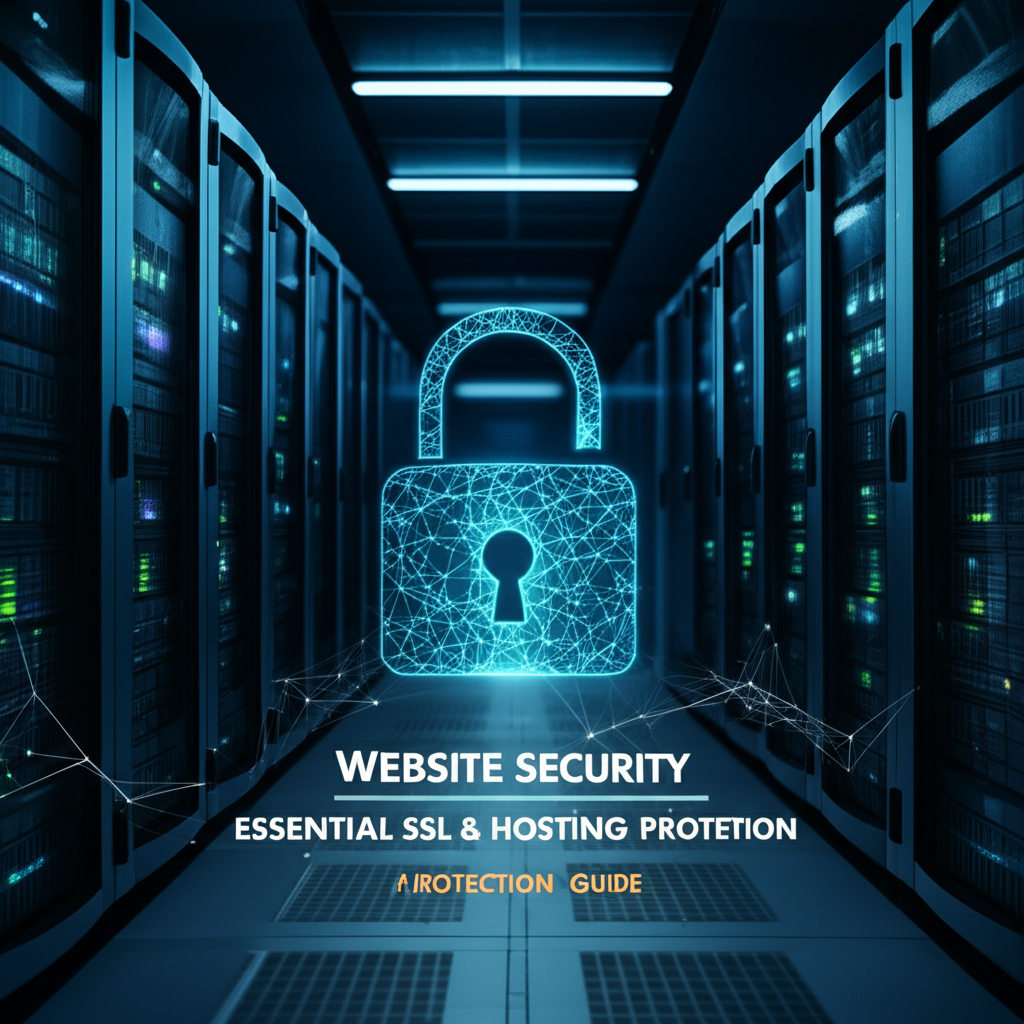- Understanding the Importance of Website Security
- The Role of SSL Certificates in Website Security
- Types of SSL Certificates and Their Benefits
- Hosting Protection: Securing Your Server Environment
- Essential Hosting Security Features
- Secure Hosting Practices: Best Practices for Website Security
- Website Security Best Practices: Beyond SSL and Hosting
Website Security: Essential SSL & Hosting Protection Guide
Website security is paramount in today’s digital landscape. With cyber threats becoming increasingly sophisticated, protecting your website and user data is no longer a luxury but a necessity. This comprehensive guide delves into the crucial aspects of website security, focusing on SSL certificates and robust hosting protection. Implementing these measures can safeguard your reputation, build trust with visitors, and ensure the long-term success of your online presence.
Understanding the Importance of Website Security

In an era where data breaches make headlines regularly, understanding the importance of website security is critical for every website owner. A secure website protects sensitive information, such as customer data, financial transactions, and proprietary business information, from falling into the wrong hands. Beyond the immediate financial implications of a breach, a compromised website can severely damage your reputation and erode customer trust, leading to long-term negative consequences.
The Role of SSL Certificates in Website Security
SSL (Secure Sockets Layer), now technically TLS (Transport Layer Security), certificates are the bedrock of online security. They encrypt the communication between a user’s browser and your website server, preventing eavesdropping and data manipulation. When a user visits a website secured with an SSL certificate, their browser displays a padlock icon in the address bar, signifying a secure connection.
Types of SSL Certificates and Their Benefits
There are various types of SSL certificates available, each catering to different needs and levels of validation:
Single Domain SSL: Secures a single domain name (e.g., www.example.com).
Wildcard SSL: Secures a single domain and all its subdomains (e.g., www.example.com, blog.example.com, shop.example.com).
Multi-Domain SSL (SAN): Secures multiple distinct domain names on a single certificate.
Extended Validation (EV) SSL: Offers the highest level of assurance and displays the company name in the address bar, building greater trust.
Choosing the right SSL certificate depends on the complexity and requirements of your website. For small businesses, a single domain or wildcard certificate might suffice. Larger organizations with multiple domains or a strong emphasis on brand trust might benefit from a multi-domain or EV SSL certificate.
Hosting Protection: Securing Your Server Environment
While SSL certificates protect data in transit, securing your hosting environment protects data at rest and safeguards your server from various threats. Choosing a reputable hosting provider with robust security measures is crucial.
Essential Hosting Security Features
Key security features to look for in a hosting provider include:
Firewall Protection: A firewall acts as a barrier between your server and the outside world, filtering malicious traffic and preventing unauthorized access.
Intrusion Detection and Prevention Systems (IDPS): IDPS monitors network traffic for suspicious activity and automatically blocks or alerts administrators to potential threats.
Regular Malware Scanning: Regular scans detect and remove malware that may have infiltrated your server.
DDoS Protection: Distributed Denial of Service (DDoS) attacks flood your server with traffic, making it unavailable. Effective DDoS protection mitigates these attacks.
Automatic Backups: Regular backups ensure that you can quickly restore your website in case of data loss or server failure.
Secure Hosting Practices: Best Practices for Website Security
Beyond relying on your hosting provider, implementing secure hosting practices further strengthens your website’s defenses:
Strong Passwords and Access Control: Use strong, unique passwords for all accounts and limit access to your server to authorized personnel.
Regular Software Updates: Keep your server software, including the operating system, web server, and applications, updated to patch security vulnerabilities.
Security Auditing and Monitoring: Regularly audit your server logs and security settings to identify and address potential weaknesses.
Website Security Best Practices: Beyond SSL and Hosting
While SSL and hosting protection form the core of website security, other essential practices contribute to a comprehensive security posture:
Content Security Policy (CSP): CSP helps mitigate cross-site scripting (XSS) attacks by specifying which sources of content are allowed to be loaded on your website.
Two-Factor Authentication (2FA): 2FA adds an extra layer of security by requiring a second form of verification, such as a code sent to your phone, in addition to your password.
* Regular Security Audits: Professional security audits can identify vulnerabilities and provide recommendations for improving your website’s security.
By implementing the strategies outlined in this website security guide, you can significantly enhance your website’s protection against cyber threats, build trust with your users, and safeguard your online presence. Investing in robust security measures is not an expense but an investment in the long-term success of your website.











Leave a Reply